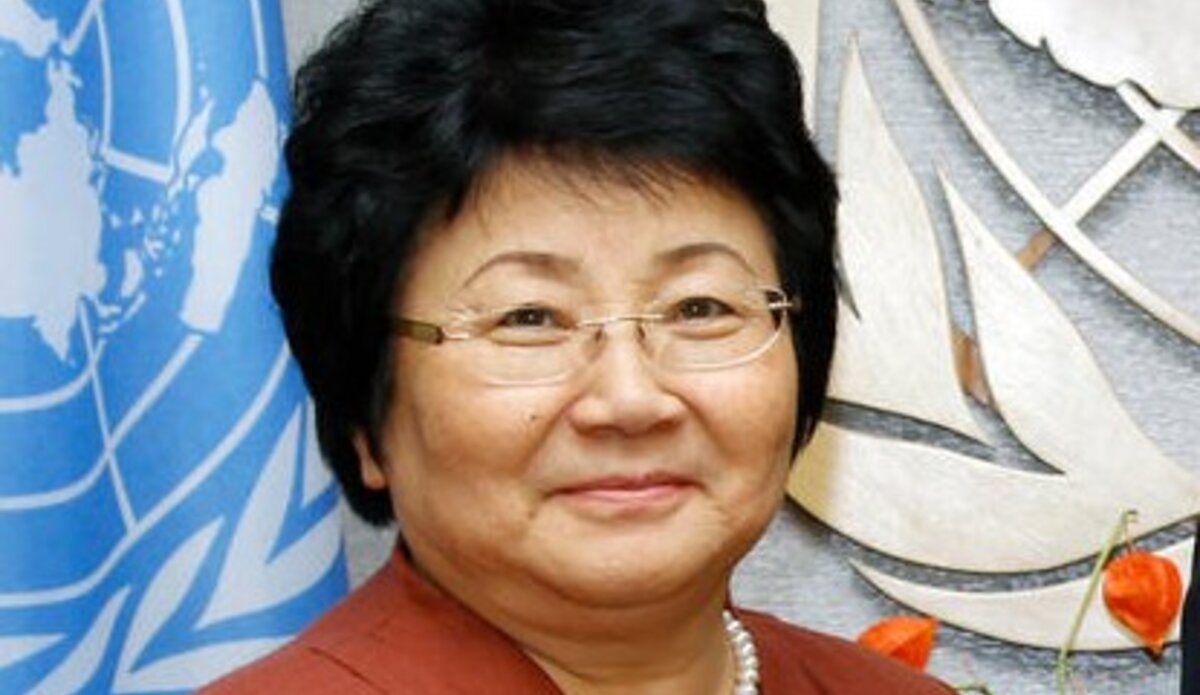Kabul seen through the eyes of Central Asia
Rosa Otunbaeva, former president of Kyrgyzstan and current UN special representative for relations with Afghanistan, took stock of the situation in an interview. Acknowledging the Taliban even some successes, but recalling that in rural areas living standards "seem to remain in the Stone Age." "We have to learn about each other's limitations, and think about the future of Afghans and all peoples."
Bishkek (AsiaNews) - In an interview with Azattyk Rosa Otunbaeva, president of the Kyrgyzstan in 2010-2011 (first woman in an ex-Soviet state), and for a year UN special representative for relations with Kabul reflected on the situation in Afghanistan, two years after the return of the Taliban to power at the end of August 2021 and withdrawal of the last American soldiers.
While the news from Afghanistan continues to raise concerns throughout the Central Asian region about possible new fronts of conflict, Otunbaeva believes that "for the Afghan population the situation has actually changed for the better, and this is attested by the fact that people from every corner of the country arrive in Kabul without fear, to receive treatment in the excellent modern clinics located there ”.
Previously it was very dangerous to cross the peripheral roads. Nor is it the case to believe that Afghanistan has been reduced to a pile of ruins, says the UN representative: "in the time I spent there, I saw 6-7 airports that can be considered first class, 'Kandahar', 'Mazari-Sharif', 'Herat', 'Jelalabad', are all excellent, and they had been well preserved due to their importance even during the war”.
Kabul is a city of 5 million inhabitants, on a very large territory. In the last 20 years, during the permanence of the Americans, a major work of building renovation has been carried out, with the construction of many multi-story buildings, even if there remains a stark contrast between the conditions of the rich and the poor. C
ertainly in the rural part the standards of living remain very backward, "like heaven and earth", assures Otunbaeva: "I was in the province of Khowst, where there was also an earthquake two years ago, and it seems to have remained of the stone".
From the point of view of international trade, Afghanistan has access to the markets of Iran, Pakistan and Central Asia, and Afghans are distinguished by a remarkable entrepreneurial vivacity.
The country's economy is reaching a certain degree of stability, even if not all countries may like this, and the confirmation also comes from the indicators of the World Bank. From the point of view of social freedoms, the conditions are obviously very problematic, due to the continuous series of bans imposed by the Taliban on the life of its citizens, and even on the UN mission.
The management of the country is in the hands of the Kabul government, with its precarious ministers, which is not recognized by any of the 190 countries in the world. There is also the emirate of Kandahar, whose emir has never shown himself in public and does not communicate with the outside world.
Yet Otunbaeva acknowledges that "we can't say anything bad about their work, they try to do everything possible", at least economically. However, the difficulties are enormous, and most of the population lives in very poor conditions; the UN mission distributes foodstuffs to more than 20 million inhabitants as humanitarian aid, in addition to medical assistance, and infant and childbirth mortality remains very high.
However, public education remains of concern, with about 50% of the population illiterate. It is also difficult to statistically detect this data, given that the last population census dates back to 1977. Literate women are around 30%, and today they have been excluded from the training process for "national traditions", which "are present in many Countries”, recalls the ex-president of Bishkek.
Moreover, Afghanistan is a mass of ethnic groups, including Pashtuns, Tajiks, Uzbeks, Turkmens, Khazars and others, even if the government remains under the control of the Pashtuns, the most backward and conservative people of all, especially towards women , who is not even allowed to show his face.
These "tribal" traditions are religiously justified with the slogan "Islam first, then Afghanistan", which is also raised on the tops of the mountains. Yet humanitarian aid comes predominantly in part from the West; Muslim Arab countries give something only on Islamic holidays. Otunbaeva concludes that "these contrasts must be a lesson for all of us: we must learn to know each other's limits, and think about the future of the Afghans and of all peoples, of Asia and of the whole world".
01/08/2016 07:53
22/06/2016 17:42
17/05/2005







.png)










